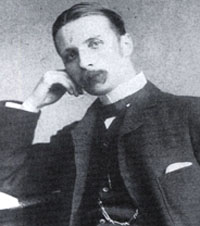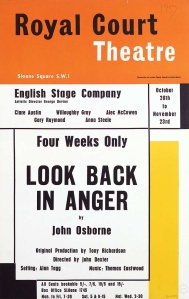“How to Write about Theatre” by Mark Fisher – a manual for critics, students and bloggers
 Mark Fisher studied Theatre at the University of Kent and has been reviewing theatre since the late 1980s when he began working for the arts and events what’s on magazine, The List, in Edinburgh. He then founded the magazine, Theatre Scotland, and now works as a freelance writer, most notably The Herald and The Guardian. Based on personal experience covering the Edinburgh Festivals over many years, he published a “Survival Guide to The Edinburgh Fringe”, the largest arts festival on the planet.
Mark Fisher studied Theatre at the University of Kent and has been reviewing theatre since the late 1980s when he began working for the arts and events what’s on magazine, The List, in Edinburgh. He then founded the magazine, Theatre Scotland, and now works as a freelance writer, most notably The Herald and The Guardian. Based on personal experience covering the Edinburgh Festivals over many years, he published a “Survival Guide to The Edinburgh Fringe”, the largest arts festival on the planet.
“How to Write about Theatre” is therefore written with a broad professional background in theatre – from playwrights, performance, production and the media. This is a comprehensive, astutely researched, academic guide to theatre criticism with historical and cultural insight.
Chapter I starts with a succinct clarification of The Job: “Writing about theatre is an act of translation, turning the language of performance into the language of words” ………which leads the reader on a journey to develop the literary skills, linguistic style and informed opinion for an accomplished, polished, professional theatre review.
The business of “reviewing” contemporary life at leisure in general has changed radically in recent years when anyone with an positive or negative opinion on a restaurant, hotel, book, music, film or a play can publish views on Facebook, Trip Advisor and Blog sites.
The publication of professional Theatre reviews began seriously in the 1770’s, avidly read in daily newspapers, weekly and periodical magazines. Allessadro Manzoni was an Italian dramatist who in 1819 analysed the purpose and essential nature of theatre criticism, which he said should be based on three questions: What were the theatre-makers trying to achieve, how well did they succeed, and was it worth it.?
The great critics of the 18th and 19th century were often playwrights, poets and novelists themselves – including William Archer (early translator of Ibsen and pioneer for a National Theatre) and his close friend, George Bernard Shaw. As theatre professionals, their intelligent, outspoken, often satirical, opinion mattered. But how does a budding journalist gain the ability to judge the merits of a play?
Fisher offers pertinent advice on how to evaluate the quality of a production in order to give your personal opinion. The starting point must be that you undertand the dramatic genre, setting, directorial aim and theatrical style in order to assess the play with informed insight.
Throughout the book, there are some wonderful quotations from archive and contemporary reviews to illustrate how to write with conviction. Shaw’s advice was “Get your facts right”. A review is based on your experience of the play with a clear argument to back up your subjective viewpoint.
As Kenneth Tynan wrote, ” I doubt if I could love anyone who did not wish to see Look Back in Anger… the best young play of the decade.” His newspaper readers and theatre-goers may have disagreed, but there’s no denying his passion and sincerity in his review. It also demonstrates the extraordinary value of a glowing review, to promote a new writer and play.
This book is like a series of literary tutorials with exercises to practice your literary style, language and voice. In twenty chapters, every topic is covered in depth – crafting the first sentence, libel v. fair comment, how to define good acting, and the valuation of the 1- 5 star review, turning words into a number. The critic is also a performer, an entertainer with his or her own script.
“How to Write About Theatre”, is an inspirational, constructive manual for all theatre professionals. It is a also a fascinating overview for theatre lovers to understand the cultural relevance, truth, knowledge, sincerity, wit and humour behind the fine art of dramatic criticism.
“How to Write About Theatre” by Mark Fisher. Bloomsbury ISBN 978-1-4725-2054-8




